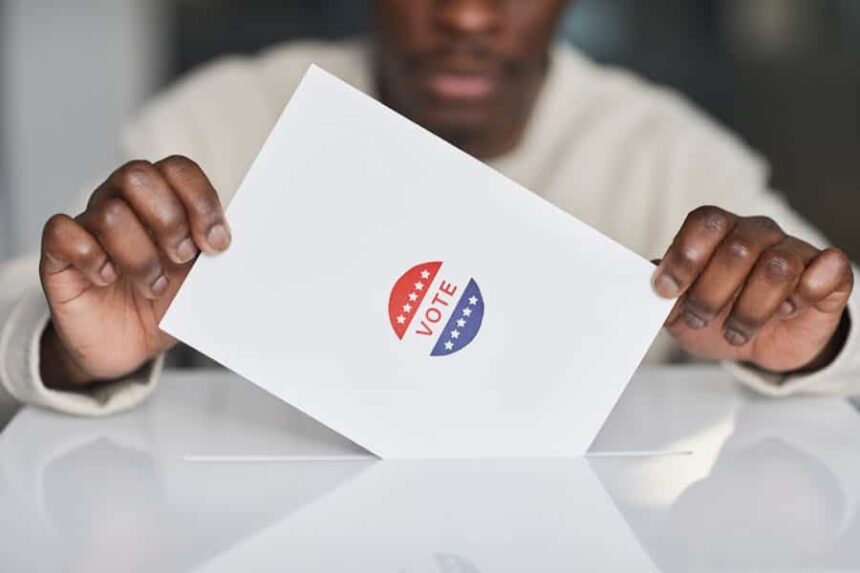Elections are the bedrock of democratic societies, offering citizens the power to influence their governance and future. Among the various types of elections, primary and general elections stand out as two of the most significant. Understanding the differences between these elections is crucial for appreciating how political candidates are selected and ultimately chosen to hold office. This comprehensive guide delves into the nuances of primary and general elections, exploring their purposes, processes, and impacts. Whether you are a seasoned voter or new to the electoral system, this article will provide valuable insights into how these elections function and their importance in the democratic process.
- Understanding Primary Elections
- The Purpose and Process of General Elections
- What is a General Election?
- How Do General Elections Work?
- When are General Elections Held?
- Why are General Elections Important?
- The Impact of General Elections
- The Evolution of Primary and General Elections
- Historical Development of Primary Elections:
- Changes in General Election Practices:
- Impact of Reforms on Elections:
- Conclusion
- FAQ’s
Understanding Primary Elections
Primary elections are a crucial initial phase in the electoral process, setting the stage for the general election. They determine which candidates will represent their respective political parties in the general election. There are three main types of primary elections: open, closed, and semi-closed.
Open primaries allow any registered voter to participate, regardless of party affiliation. This inclusivity can lead to a broader range of voter participation. Still, it may also result in strategic voting, where members of one party vote in the other party’s primary to influence the selection of a weaker candidate.
Closed primaries restrict participation to registered party members only. This type of primary ensures that the party’s candidate is chosen solely by its members, maintaining party integrity but potentially limiting voter turnout.
Semi-closed primaries allow unaffiliated voters to choose which party’s primary they wish to participate in. This middle ground offers some flexibility while maintaining a degree of party control over the candidate selection process.
The primary election process is vital for consolidating support within the party. It helps avoid splitting votes among multiple candidates from the same party, ensuring a unified front in the general election. This process strengthens the party’s position and provides a clear choice for voters in the general election.
Another key aspect of primary elections is their timing and format. Primaries can be held on different dates depending on state regulations and party rules, leading to a staggered election calendar. This staggered approach allows candidates to build momentum over time and can significantly impact their chances in the general election.
Primary elections can take various forms, such as caucuses or traditional ballot voting. Caucuses involve local gatherings where party members discuss and vote on candidates, while traditional primaries use a secret ballot system. Each method has its unique advantages and challenges, influencing the dynamics of the electoral process.
In summary, primary elections are a critical step in the political process. They determine the candidates who will compete in the general election. They provide a platform for intra-party competition and help parties present unified candidates for the final electoral showdown.
The Purpose and Process of General Elections
What is a General Election?
A general election is the final stage of the electoral process, where voters choose among candidates from various parties to fill public offices. This election determines who will hold positions such as president, governor, or local representatives.
How Do General Elections Work?
General elections are held on a specific date, often called Election Day. During this time, voters cast their ballots for their preferred candidates, and the candidate with the most votes typically wins the election. The process can vary slightly depending on the electoral system, such as first-past-the-post, proportional representation, or ranked-choice voting.
When are General Elections Held?
General elections are usually held regularly, such as every four years for presidential elections in the United States. The timing can vary depending on the office and the country’s electoral laws. In addition to scheduled elections, general elections can also be called early in certain circumstances, such as a vote of no confidence in a parliamentary system.
Why are General Elections Important?
General elections are crucial because they determine the leadership and direction of the government. They provide a means for the electorate to hold elected officials accountable and make their voices heard on various issues. The outcomes of general elections reflect the people’s will and ensure that elected officials represent their constituents’ preferences.
The Impact of General Elections
General elections can lead to significant changes in policies, governance, and the overall political landscape. They provide an opportunity for citizens to influence the future direction of their country or community. The results can shape domestic and foreign policy, economic strategies, and social programs, making general elections a pivotal event in the democratic process.
The Evolution of Primary and General Elections
Elections have been a fundamental part of democratic societies, continuously evolving to ensure greater transparency, inclusivity, and fairness. The evolution of primary and general elections highlights significant changes and reforms that have shaped the modern electoral landscape.
Historical Development of Primary Elections:
- Early Practices: Initially, candidate selection was a closed process dominated by party leaders and political elites. This method lacked transparency and excluded the general public from participating, leading to dissatisfaction and calls for reform.
- Progressive Era Reforms: In the early 20th century, progressive movements in the United States advocated for more democratic practices, leading to the establishment of primary elections. These reforms aimed to reduce the influence of party bosses and give ordinary voters a voice in the candidate selection process. By the 1910s, many states had adopted primary elections, making them a standard practice in the U.S. political system.
- Modern Primary Systems: Today, primary elections are categorized into three main types: open, closed, and semi-closed. Open primaries allow any registered voter to participate, closed primaries restrict participation to registered party members, and semi-closed primaries offer a middle ground, allowing unaffiliated voters to choose a party primary to participate in. These systems ensure that candidate selection is a more transparent and democratic process.
Changes in General Election Practices:
- Secret Ballot Introduction: In the late 19th century, the secret ballot was introduced, one of the most significant reforms in general elections. This change ensured voter privacy, reduced the potential for coercion and fraud, and helped build public trust in the electoral process.
- Technological Advancements: Technological innovations have transformed the voting process over the decades. The introduction of electronic voting machines, online voter registration, and other digital tools has made voting more accessible and efficient. These advancements aim to streamline the electoral process, although they also bring challenges related to security and integrity.
- Media Influence: The role of the media has become increasingly significant in general elections. Various platforms, from radio and television to social media, influence voter perceptions and turnout. Political campaigns use these media extensively to reach and engage with voters, making media an integral part of modern elections.
Impact of Reforms on Elections:
- Increased Voter Participation: Reforms in primary and general elections have led to higher voter turnout by making the process more accessible and inclusive. Efforts to simplify voter registration, extend voting hours, and provide mail-in ballots have contributed to increased participation.
- Enhanced Transparency and Trust: These reforms have strengthened public trust in the electoral system by introducing transparent processes and reducing the influence of political elites. Voters are more likely to engage in a process they perceive as fair and open.
- Challenges and Future Directions: Despite progress, challenges remain in ensuring fair and free elections. Issues such as voter suppression, gerrymandering, and misinformation need to be addressed to strengthen the democratic process further. Future reforms should enhance security, accessibility, and transparency in elections.
Conclusion
Primary and general elections are fundamental to the democratic process, each serving unique and critical roles. Primary elections focus on selecting party candidates, while general elections determine the officeholders. Understanding these differences helps citizens better engage with the political system and effectively exercise their right to vote. As elections evolve, reforms and innovations will be vital in ensuring fair and transparent electoral processes. The distinction between primary and general elections highlights the importance of each step in the electoral journey, from narrowing down candidates to making the final selection of leaders.
FAQ’s
Can anyone vote in a primary election?
It depends on the type of primary. Open primaries allow registered voters to participate, while closed primaries restrict participation to registered party members.
How often are general elections held?
General elections are typically held regularly, such as every four years for presidential elections in the United States.
What role do media and technology play in elections?
Media and technology significantly influence voter perceptions, campaign strategies, and overall election outcomes.




